Nicolay Pavlovich Perosio
Nicolay Pavlovich Perosio, writer of economics issues, was born in Bogliasco on the 15 th August, 1819 . Their father, Paolo Perosio had emigrated from Bogliasco in the beginnings of XIX century, after the invasion of Napoleon. Paolo was a stock exchange`s dealer and landowner and resided in Odessa, actual Ukraine.
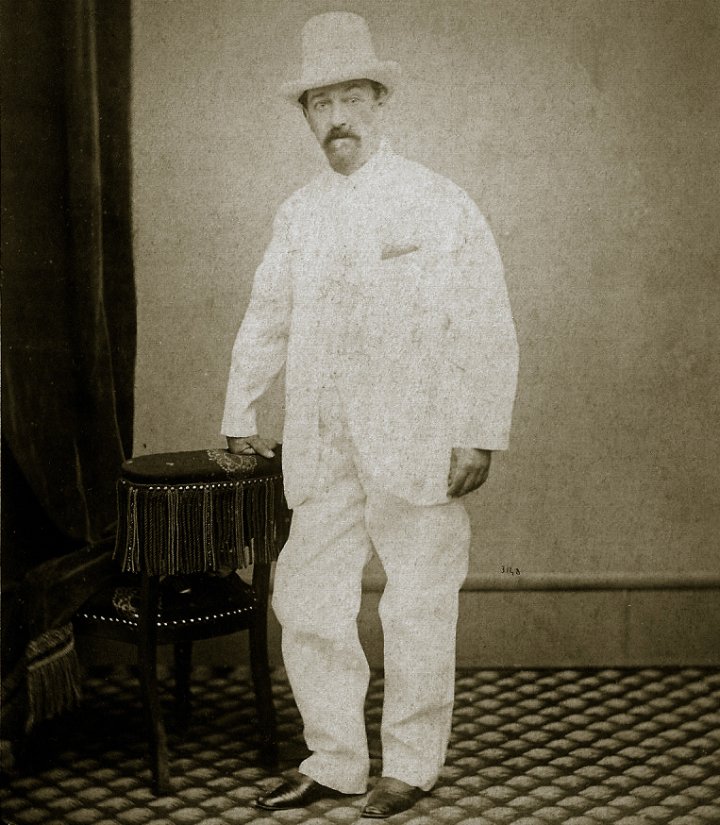
Nikolay Pavlovich Perosio
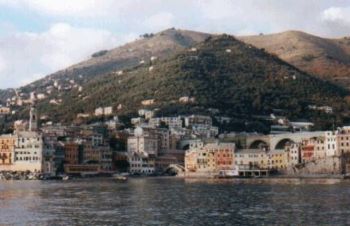
Bogliasco, Genoa, Italy.
Odessa had been founded in 1794 by Catalina II “the great”, when the Russian queen decided that her empire needed a port on the Black Sea. Italian architects and French played an important paper in the construction of the city.
Nicolay studied in the School Richelieau, institution cultural French located in Paris integrated by a group of five academies, each one of those which, it foments an or several branches of the art, the literature, the philosophy or the science. The Institute, like it was founded and organized in 1795 during the French Revolution, he understood three societies: the one dedicated to the physics and mathematics, another dedicated to the moral and political sciences, and lastly a third dedicated to the literature and fine arts. It reorganized in several occasions, in 1832 he acquired their definitive structure.
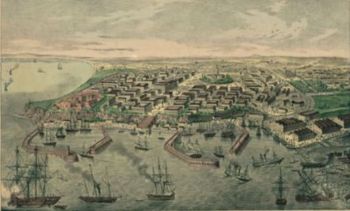
Odessa in 1850, Russian Empire.
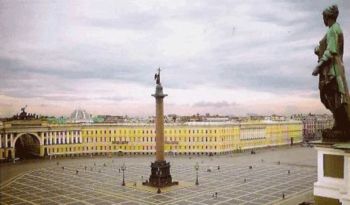
Saint Petersburg, Russia.
Nicolay was administrator of prince Kochubey's lands. Then death of Kochubey, Nicolay married with the daughter of the “Kamerger”, Maria Zataevich in Kiev, Ukraine and they moved to Saint Petersburg. There their sons Vassili (Basilio) and Ivan were born.
t the end of 1859, Nicolay faced in the Russian Society of Steamship and Commerce. He wrote some articles in which he accused to the administration of the Society of making big abuses. The discussion could have continued during long time and to finish with the polemic he offered a public debate. The antagonist of Nicolay Pavlovich Perosio was Mr. Smirnov. That debate took place in December of 1859 in the hall of the famous “Passage”. A great quantity of public converged due to the interesting of the topic and for the new discussion method. This event caused a great sensation and you even discussed on the topic in many newspapers in the important daily Iskra (The Spark). Some examples of that published in the time: Interesting passage in the history of the Russian tradition (article of the Mr. T-nov in Sovremennik., 1859, #12, LXXVIII, p.403-422), Mr. Smirnov and Mr. Perosio (in Russkoe Slovo, 1860, #1, p.92-108), etc.
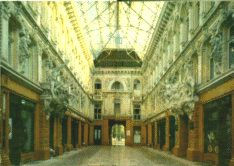
Hall of Passage Hotel, Odessa, Ukraine.
In 1868, Nicolay Pavlovich Perosio it was invited to serve as secretary of the Prince Pavel Pavlovich Gagarin (1798-1872), the boss of the Town council of Ministers and of the Town council of State of the Russian Empire during the czar's reign Alejandro II.


In 1872, the Prince Gagarin died and Nicolay moved to Genoa, where he bought a splendid residence in the via Assarotti 14, where he lived with their second spouse Luisa Anderson and its sons. Nicolay died on May 27, 1877 in Genoa and their remains are buried in the monumental cemetery of Staglieno,Village of Vaccarezza , city of Genoa.
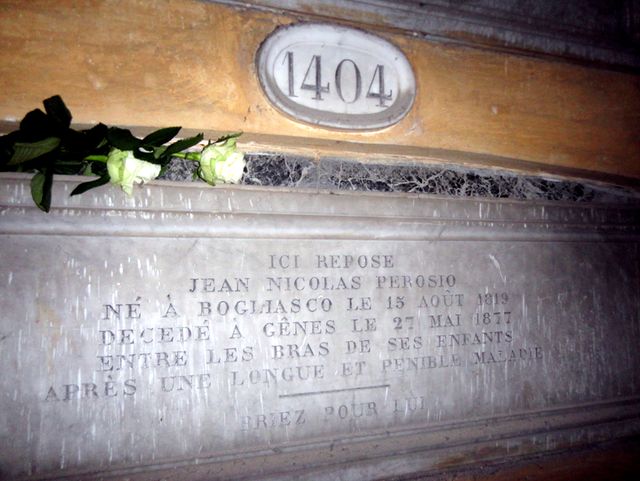
Nicolay Pavlovich Perosio was author of many books and articles on financial and economic topics. Also, he was member of the Independent Economic Society and he participated active in their works.
Above data was summarized of the Biographical Encyclopedia of Russia of A. A. Polovtsev, Moscow, 1896-1918, p.562 (Sources: Information given for descending of Ivan Nicolayevich Perosio, son of Nicolay Paolovich Perosio), and of our investigation.
Developed by